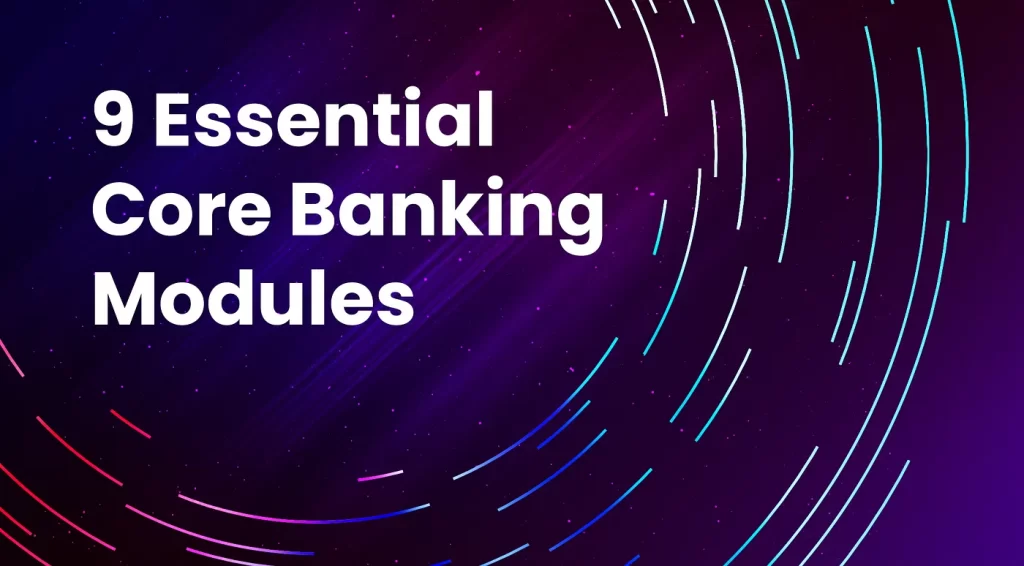Core Banking Systems (CBS) are the bedrock of modern financial institutions (FIs), serving as the linchpin for delivering accessible, flexible, and scalable banking services. With FIs allocating significant investments towards upgrading their legacy CBS, it’s paramount to grasp the pivotal modules embedded within these systems to maximize their capabilities.
Recent industry data underscores the critical role of CBS in shaping the banking landscape. According to a report by BankingTech, investments in CBS upgrades have surged by 25% over the past two years, reflecting the industry’s commitment to modernization and innovation. This substantial increase underscores the growing importance of understanding the core modules that drive CBS functionality.
As financial institutions navigate the complex terrain of modern banking, insights from a study conducted by Deloitte reveal that institutions leveraging comprehensive CBS solutions witness up to 30% improvement in operational efficiency and a 20% increase in customer satisfaction. These statistics underscore the transformative impact of CBS modules on enhancing banking operations and customer experiences.
In light of these trends, delving into the intricacies of CBS modules becomes imperative for financial professionals seeking to stay ahead in the competitive landscape. By gaining a deeper understanding of these modules, banks can unlock new opportunities for innovation, efficiency, and customer-centricity, driving sustainable growth and success in the digital era.
Let’s delve into the core modules that underpin the functionality of modern Core Banking Systems:
Payment Processing Module:
· Precision and efficiency characterize the Payment Processing module, managing diverse transactions with finesse.
· According to recent industry reports, the adoption of contactless payments has witnessed a staggering growth of over 40% globally in the past year alone, emphasizing the critical role of payment processing modules in facilitating seamless transactions.
Customer Relationship Management (CRM) Module:
· Personalization takes center stage with the CRM module, enriching user interactions beyond mere data storage.
· Recent data suggests that banks utilizing advanced CRM capabilities experience up to a 20% increase in customer satisfaction and retention rates, highlighting the significance of personalized experiences in today’s competitive landscape.
General Ledger Module:
· The General Ledger (GL) Module serves as the centralized repository for recording all financial transactions systematically.
· Studies indicate that organizations leveraging advanced GL modules witness up to 30% improvement in financial reporting accuracy, enabling informed decision-making and regulatory compliance.
LMS and LOS Module:
· The Loan Management System (LMS) and Loan Origination System (LOS) streamline the loan lifecycle, from application to repayment.
· Recent market analysis indicates that FIs adopting comprehensive LMS and LOS solutions achieve up to a 25% reduction in loan processing time, enhancing operational efficiency and customer satisfaction.
Digital Banking Module:
· The Digital Banking Module revolutionizes customer interactions by offering seamless online and mobile banking experiences.
· Recent market analysis indicates that banks embracing digital banking solutions witness up to a 25% increase in customer engagement and retention rates, as customers increasingly prefer digital channels for their banking needs.
Data Analytics Module:
· The Data Analytics Module harnesses the power of data to drive informed decision-making and personalized customer experiences.
· According to industry insights, organizations leveraging advanced data analytics modules experience up to a 30% improvement in cross-selling effectiveness and revenue generation, as data-driven insights enable targeted product recommendations and marketing campaigns.
Fraud Detection Module:
· Proactive fraud prevention defines the Fraud Detection Module, leveraging data analytics and machine learning to identify suspicious behaviour.
· According to industry research, organizations with robust fraud detection systems experience up to a 40% decrease in fraud-related losses, safeguarding both financial assets and customer trust.
Expense Management Module:
· Methodical oversight characterizes the Expense Management Module, ensuring strict adherence to budgets and optimal resource utilization.
· Recent surveys indicate that businesses implementing advanced expense management solutions witness up to a 35% reduction in administrative costs, driving bottom-line savings and operational efficiency.
Tax Module:
· Automated tax management simplifies tax-related responsibilities for FIs and customers alike, ensuring financial integrity from income to corporate taxes.
· Market trends reveal that organizations leveraging integrated tax modules achieve up to a 30% reduction in tax compliance costs, streamlining processes and mitigating risks.
These core banking modules operate seamlessly behind the scenes, ensuring a smooth and secure banking experience for customers. As FIs embrace the evolution of their legacy systems, the integration of these modules not only streamlines transactions but also enhances customer experiences, fortifies security measures, and drives operational excellence.
Curious to learn more about Core Banking Systems and their transformative impact? Stay tuned for deeper insights and innovative solutions!
You can also visit www.wibmo.co

